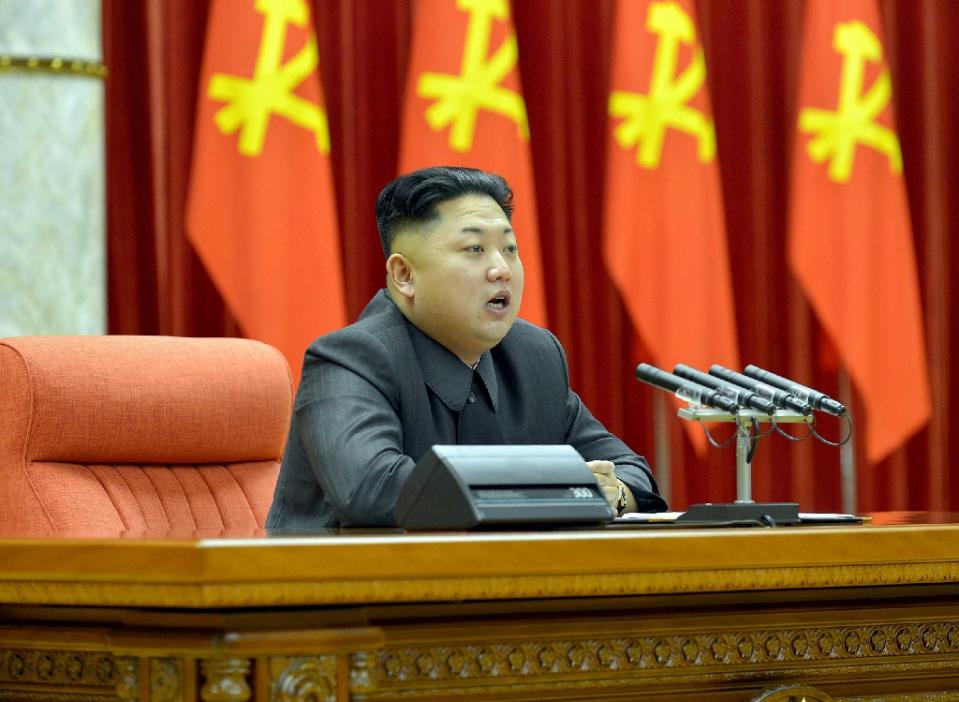Seoul – North Korea said Wednesday it had carried out a "successful" hydrogen bomb test, a claim that – If true – massively raises the stakes over the state's banned nuclear programme.
Neighbouring South Korea's National Security Council "strongly condemned" the test, while Japanese Prime Minister described it as a "great threat" that represented a gross violation of UN Security Council resolutions.
"The republic's first hydrogen bomb test has been successfully performed at 10:00am (0330 GMT)," North Korean state television announced.
"With the perfect success of our historic H-bomb, we have joined the rank of advanced nuclear states," it said, adding that the test was of a miniaturised device.
A hydrogen, or thermonuclear device, uses fusion in a chain reaction that results in a far more powerful explosion than the fission blast generated by uranium or plutonium alone.
Last month, North Korean leader Kim Jong-Un suggested Pyongyang had already developed a hydrogen bomb.
The claim was questioned by international experts and there was continued scepticism over Wednesday's test announcement.
Scepticism over H-bomb
"This weapon was probably the size of the US Hiroshima bomb but this was not a hydrogen bomb. It was fission technology," Bruce Bennett, a senior defence analyst with the Rand Corporation told the BBC.
"The bang they should have gotten would have been 10 times greater than what they got," Bennett said.
Given the estimated yield, the device was "unlikely to be a true 2-stage thermonuclear bomb," tweeted James Acton, co-director of the nuclear policy program at the Carnegie Endowment for International Peace.
The test, which came just two days before Kim Jong-Un's birthday, was initially detected by international seismology monitors as a 5.1-magnitude tremor next to the North's main Punggye-ri nuclear test site in the northeast of the country.
Most experts had assumed Pyongyang was years from developing a thermonuclear bomb, while assessments were divided on how far it had gone in mastering the technology to miniaturise a warhead.

Picture taken by North Korea's official Korean Central News Agency (KCNA) on January 5, 2015 shows a mass rally at the Kim Il-Sung square in Pyongyang. Photo: AFP
Whether an H-bomb or not, it was North Korea's fourth nuclear test and marked a striking act of defiance that flew in the face of enemies and allies alike who have warned Pyongyang it would pay a steep price for moving forward with its nuclear weapons programme.
Challenge to UN, Obama
The three previous tests in 2006, 2009 and 2013 triggered waves of UN sanctions. Their failure to prevent a fourth detonation will place the Security Council under intense pressure to take more drastic action this time around.
It throws down a particular challenge to US President Barack Obama who, during a visit to South Korea in 2014, lashed North Korea as a "pariah state" and vowed sanctions with "more bite" if Pyongyang went ahead with another test.
The response of China, North Korea's economic and diplomatic patron, will be key. Beijing has restrained US-led allies from stronger action against Pyongyang in the past, but has shown increasing frustration with its refusal to suspend testing.
But China's leverage over Pyongyang is mitigated, analysts say, by its overriding fear of a North Korean collapse and the prospect of a reunified, US-allied Korea directly on its border.
China has been pushing for a resumption of six-party, aid-for-disarmament talks on North Korea, insisting that engagement with Pyongyang is the only way forward.
The six-party process, involving the two Koreas, the United States, China, Japan and Russia, has been in limbo since 2007 and Pyongyang's decision to move ahead with a fourth test has almost certainly hammered the final nail in its coffin.
After its last nuclear test in 2013, the North restarted a plutonium reactor that it had shut down at its Yongbyon complex in 2007 under an aid-for-disarmament accord.
The Yongbyon reactor is capable of producing six kilograms (13 pounds) of plutonium a year – enough for one nuclear bomb.
Pyongyang is currently believed to have enough plutonium for as many as six bombs, after using part of its stock for at least two of its three atomic tests to date.
It is still unclear whether the 2013 test used plutonium or uranium as its fissile material.




















































